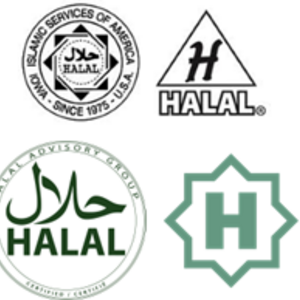Borderline Cases
Depending on individual practice, there are some foods where opinions differ on whether they are Halal. This includes food that appears to be Halal, but where it is unclear exactly where it is sourced from (such as whether meat has been slaughtered in a halal way), as well as foods about which there is some debate.
Alcohol as a drink is forbidden, but there is some debate within Islam about brewer’s yeast, a byproduct of the beermaking process, is sometimes used as a flavoring in some food. While it is not itself alcoholic, this is also a point of contention. Similarly, small amounts of alcohol are involved in the creation of extracts (such as vanilla or peppermint extract) and some flavorings, and there are also differing schools of thought about whether eating food made using these is acceptable.
Some cheeses and other dairy products are made with rennet, an enzyme sourced from cattle. Since it is harder to trace the provenance of these cattle and whether they were slaughtered in accordance with halal law, many Muslims will also avoid them. There are increasingly certain hard cheeses, such as parmesan, which have specific vegetarian versions available that should be Halal.
Whey, which is often used as a protein supplement, to produce soft cheeses such as ricotta or as an additive in other processed food, is not always halal, as rennet is also used in its production.
